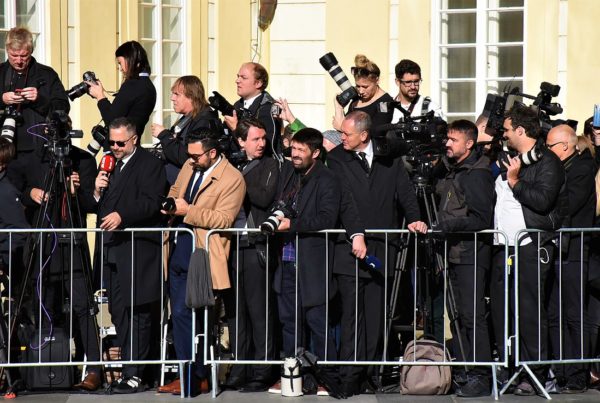This post, written by Sohail Raza, and originally published by The Gatestone Institute on September 7, 2016, has been republished with their permission.
At this fraught time in the history of Islamist radicalism, extremism and terrorism, it is important that Canadian public authorities — especially the police and security services — not inadvertently confer legitimacy and credibility on organizations and individuals whose histories and associations raise legitimate questions about their ideological background, links and agendas.
One way in which authorities unintentionally assist in building the credibility of undeserving groups and individuals is by sponsoring and attending meetings and events involving such persons and organizations. It is therefore important for those in positions of authority to acquit themselves properly of their responsibility to meet due diligence obligations, when it comes to screening those involved in such events.
On April 10, 2016, police acknowledged that it had been an error to invite a controversial Muslim Group, the National Council of Canadian Muslims (NCCM), to an event organized by the Council’s Communications Director, Ms. Amira Elghawaby, and attended by the Durham Regional Police Service and the Regional Municipality of Durham, Ontario. The event, on March 31, 2016, was described as a workshop, “Human Differences: Islamophobia,” and was to be attended by employees of the Regional Municipality of Durham.
There are many, including the Council for Muslims Facing Tomorrow (MFT), who strongly believe that the NCCM is an unsuitable connection for Durham Regional Police Services and Durham Region to maintain, and to have participated in a public, tax-funded proceeding.
In this regard, various, apparently credible, sources have made claims and observations along the following lines:
The National Council of Canadian Muslims was established as the Canadian Council on American-Islamic Relations (CAIR-Canada, CAIR-CAN, CAIR.CAN), the Canadian chapter of the American-based Council on American-Islamic Relations (CAIR). CAIR, a Saudi-funded organization that was designated an unindicted co-conspirator in the successful Holy Land Foundation prosecution, often described as the biggest terror-funding trial in United States history. Despite the court’s misgivings about the government’s having made the designation public, the court upheld the unindicted co-conspirator designation imposed on CAIR.
According to a US court, “The Government has produced ample evidence to establish the associations of CAIR, ISNA and NAIT with HLF, the Islamic Association for Palestine (“IAP”), and with Hamas.” Under Canadian and US law, Hamas is a designated terrorist organization.
Several CAIR-connected personnel, including its national civil liberties’ coordinator, were sent to prison following terrorism-related convictions.
In 2003, CAIR-CAN founding Chair Dr. Sheema Khan stated under oath that CAIR-CAN was under the direction and control of the US-based CAIR mother organization.
In July 2013, CAIR-CAN announced its change of name to the National Council of Canadian Muslims (NCCM), some specialists regarding this as a way of masking the connection to CAIRor to its history as part of CAIR; a CAIR-CAN July 6, 2013 news release quoting NCCM/CAIR-CAN Executive Director Ihsaan Gardee as saying “We remain the same organization our constituents and partners have come to rely on,” is now unavailable at its original NCCM/CAIR-CAN website URL. Continuity in senior CAIR-CAN and NCCM ranks is evident, including in the presence of Mr. Ihsaan Gardee and Ms. Amira Elghawaby in NCCM/CAIR-CAN.
NCCM/CAIR-CAN has maintained significant involvement with the Reviving the Islamic Spirit (RIS) annual conventions, at least some of which have involved presentations by individuals known for radical views. Among a number of other troubling people featured at RIS conventions, was William W. Baker, sometimes referred to as a neo-Nazi and who had reportedly favoured“the creation of a united Christian-Muslim front against Jews and other groups.”
Another was India’s Dr. Zakir Naik, about whose divisive ideological extremism a Muslim scholar asserted, “in India, Sunnis and Shias have joined together against the destructive efforts of Zakir Naik”.
It has recently been reported that “Dr Naik suggested that Muslims men may rape their slave,” — “a disturbing echo,” wrote a journalist, “of the doctrines of the Middle East’s Islamic State insurgency.” The appearance of some public officials, including a now-disgraced former RCMP Commissioner, at RIS conventions, has been attributed by some to politics, failures of due diligence and other such lapses.
A long-term CAIR-CAN official was Dr. Jamal Badawi, a former member of the Muslim Association of Canada board, who was himself named a US unindicted co-conspirator and was on the executive of the US Islamic Society of North America (ISNA), an American unindicted co-conspirator organization. He has been alleged to support polygamy and to have publicly advocated light physical punishment for misbehaving wives.
NCCM/CAIR-CAN, along with the controversial Islamic Social Services Association, put together what they characterized as a counter-radicalization handbook, United Against Terrorism, that recommended hardline clerics. Despite public objections and a last-minute RCMP withdrawal from the project on grounds of the handbook’s “adversarial” qualities, the handbook has since been distributed, possibly by NCCM/CAIR-CAN-linked operatives, without the removal of RCMP’s name and logo. The RCMP was criticized for having made the NCCM/CAIR-CAN connection in the first place.
Responding to a 2014 NCCM/CAIR-CAN letter to Prime Minister Harper, Harper’s communications director said, “We will not take seriously criticism from an organization with documented ties to a terrorist organization such as Hamas.” NCCM/CAIR-CAN denies any suggestion of inappropriate behavior or connections on its part, and, after some delay, sued in libel in the matter. Those being sued eventually made a motion requesting further disclosure about NCCM/CAIR-CAN’s background. On December 2, 2015, Madam Justice Liza Sheard of the Superior Court of Ontario followed up, writing of the detailed nature of the defence’s position:
“… defence describes the incorporation of the plaintiff and its name change on June 24, 2013; it makes specific reference to the connection or relationship between CAIR-CAN and CAIR; it sets out details of its allegation connecting the plaintiff with the 2007 litigation in United States of America v. Holy Land Foundation for Relief and Development et al. …; it provides details for its allegation that a director of the plaintiff corporation were named on the U.S. Government List of Unindicted Co-conspirators; it sets detailed allegations that this and another director were also board members of an association that openly endorsed Hamas; it sets out details of the Canada Revenue Agency declining to grant charitable registration of another organization, the Jerusalem fund for human services; and that CRA [Canada Revenue Agency] has identified it as providing part of a support network for Hamas.”
On the basis of this, among other, considerations, Justice Sheard ordered NCCM/CAIR-CAN to produce further information. The outcome of the broader legal case is yet to be decided.
Like its American mother organization, NCCM/CAIR-CAN has on occasion been thought to take a somewhat exaggerated, divisive view of the position of Muslims in society, an approach said to embrace a victimhood narrative that risks alienating Muslims in general – and Muslim youth, in particular – from their non-Muslim fellow citizens. The propagating of the word “Islamophobia” has been regarded as especially unhelpful, and condemned by some as a means of silencing Muslims and non-Muslims who would warn of the growing hazards of Islamist radicalism, extremism and terrorism.
Concerns have been raised about the possible propensity of NCCM/CAIR-CAN, primarily during its “CAIR-CAN” phase, to share its CAIR mother organization’s tendency to launch libel suitsthat it later would agree to dismiss. To some critics, this might imply constitutionally ambiguous attempts to employ what is sometimes called “libel lawfare” in efforts to silence those asking questions about NCCM/CAIR-CAN.
It should be observed that the Council for Muslims Facing Tomorrow is unaware of any formal attempt by NCCM/CAIR-CAN to condemn, publicly and by name, CAIR and those persons connected to CAIR who have been convicted of terrorism-linked offences. Nor is it known whether NCCM/CAIR-CAN might open its financial and other books and records for public examination, in order to clarify certain issues and the nature of relationships. MFT cautions that, consistent with due diligence examinations of any organization, endorsements of NCCM/CAIR-CAN by persons and organizations, including human rights personalities, should be scrutinized rigorously. This, in order to comprehend whether endorsements reflect a detailed understanding of the origins, history, background and connections of NCCM/CAIR-CAN, and whether those endorsing may be, or perceive themselves to be, compromised by earlier dealings with the group.
To its credit, the Durham Regional Police Service, asserted that this error had been made by the Police Service’s outreach committee. The Chief undertook to guard against any repetition of this or similar errors; proper due-diligence assessments would be conducted for events significantly involving the Durham Regional Police Service, so that inappropriate interests would not be inadvertently legitimized by association with the Service.
Given the importance in contemporary Canada of ensuring that official public outreach to Muslim communities involve only reliable representatives of moderate Canadian Islam — especially as models for Canadian Muslim youth — the Council for Muslims Facing Tomorrow respectfully requested that the Durham Regional Police Service and Durham Region immediately cease involvement with the National Council of Canadian Muslims and its officials.
Sohail Raza is a consultant involved in exposing radicalization and has appeared as an expert witness before the Government of Canada’s Senate hearing on Radicalization.








